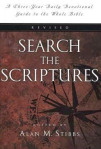Study 8 From The Book of Mark is: Mark 4:1-20
1.
What does this parable teach concerning
(a) the reasons why even the teaching of Jesus failed to produce fruit in the
lives of many of the hearers; (b) the method by which the kingdom comes in this
present age; (c) the criteria by which true success is measured in gospel
preaching?
2.
‘He who has ears to hear, let
him hear’. Is the Word of God finding entrance into my heart (verse 15)? Is it
taking deep root (verses 16, 17)? Am I allowing some other crop to mature in my
heart (verses 18, 19)? What measure of fruit is being produced in my life (verse
20)? Cf. Heb. 3:7, 8.
Notes
1.
A new method in Jesus’s
teaching begins here. The first parable
is itself an indication of the purpose of teaching by parables. See verse 13. Such a method brings hearers
under judgment, and finds out the truly responsive. The real cause of blindness
to the truth is unwillingness to repent and to be forgiven. Those who, as disciples, are responsive are
given fuller understanding. See verse
34.
2.
Verse 11. ‘The secret’ or ‘mystery’
(AV and RV); this is not something which cannot be understood. Rather it is something specialty disclosed by
divine revelation to those who are ready to understand it. ‘The secret of the
kingdom of God’s is the content of the gospel of Christ. Cf. Eph. 3:4; 6:19.


